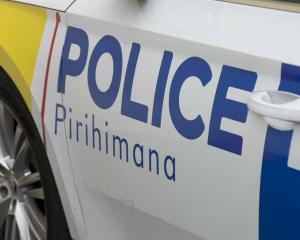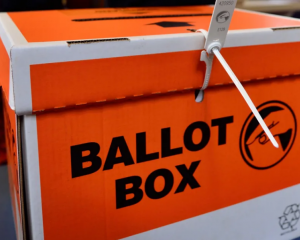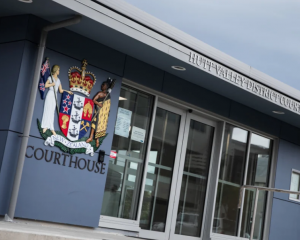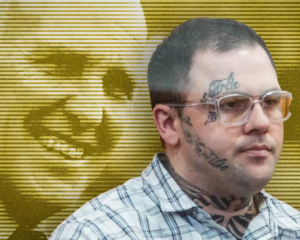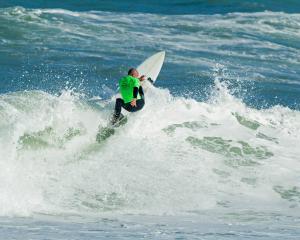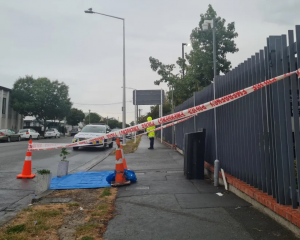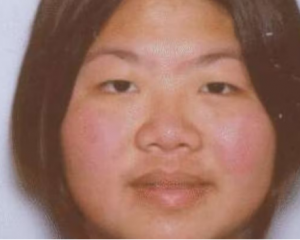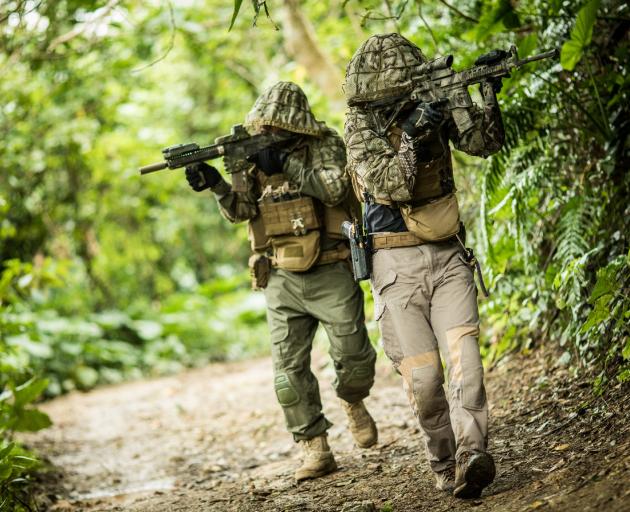
Airsoft groups across the country — including six in the South — were scrutinised by police after officers became aware of an individual involved in the sport seen wearing a far-right patch and "displaying identity motivated idealogies and rhetoric online".
Airsoft involves opposing teams using gas-powered, realistic-looking weapons to shoot each other with small plastic ball bearings.
Players often emulate militarily tactics and aesthetics, sometimes re-enacting historical battles.
Intelligence gathering was undertaken in March last year by the police open source intelligence team, which monitors publicly available online content.
After being asked to assist with a threat assessment of the individual, the team discovered three more players of interest who were potentially using airsoft to express "non-regular idealogies", according to a collection summary prepared by the team.
Substantial details about the trio were gathered in the summary, including their names, dates of birth and addresses, although all was redacted in the documents released to the Otago Daily Times under the Official Information Act.
The summary warns an individual or a group could potentially use airsoft to prepare for acts of extreme violence and suggests police might want to explore ways to reduce the risk of such activity happening.
The summary notes the Atomwaffen Division — a transnational far-right terrorist network linked to attacks in several countries — has used airsoft weapons in lieu of real firearms in their propaganda videos as a recruiting tool, a way to legitimise their idealogies.
The report references British man Andrew Dymock, who was jailed for seven years in 2021 for his part in leading two similar far-right groups. At his trial he claimed several neo-Nazi flags he brought were for his "European polytheistic" airsoft team.
While most individuals engaged in airsoft to socialise, exercise and indulge military enthusiasms, some sought to demonstrate their adherence to militant idealogies and demonstrate weapons handling and tactical readiness.
Although not referenced in the summary, the Royal Commission of Inquiry into the terrorist attack on Al Noor Mosque, in March 2019 revealed the helmet used by the shooter was of the kind used for airsoft sports and easily obtained in New Zealand.
The summary notes Airsoft Sports New Zealand (ASNZ), a collective of airsoft societies across the country, has been engaging constructively with police.
The group was set to release a database of more than 400 players so it could be verified whether players were affiliated with a ASNZ club.
The collection summary recommended police might want to further engage with ASNZ to help improve the community’s resilience to being exploited by ideologically motivated individuals.
It suggests police could build rapport with the community and liaise with the group to understand their internal processes for vetting players.
Three clubs in the South were named in the report as being members of ASNZ — Southern Wolves, Oamaru Hardballers and the Dunedin Airsoft Corps.
Three more — Central Otago Airsoft Team (Coast), Southland Airsoft Club and Invercargill Airsoft Club — were unaffiliated.
Coast main contact Kurt Holsted said the monitoring did not surprise him.
The Wānaka police station knew about the group, which had been around for about a decade, and had spoken with them on occasions, Mr Holsted said.
The group kept an eye on everyone and would quickly kick out anyone who they deemed were not playing for the right reasons or were making racist remarks.
However, they tended to not have any issues and had never had to kick anyone out for extremism.
Coast was less focused on army-dress up as some other groups were and they played airsoft in a way that was similar to paintball.
The group focused on having fun, being safe, hanging out with mates — and most games ended with a barbecue, Mr Holsted said.
Police declined to comment further on the summary, including about what region the persons of interest were located in.
Invercargill Airsoft Club contact person Steve Hibbs declined to comment.
Other Southern airsoft groups and ASNZ have not responded to requests for comment.
What is airsoft?
— Players compete to eliminate the opposing team.
— Realistic looking firearms shoot 6mm plastic ball bearings with compressed gas.
— Originated in Japan in the early 1970s.
— Gameplay ranges from multi-day battles to small, fast-paced skirmishes.
— Gamers often emulate military equipment and tactics.

